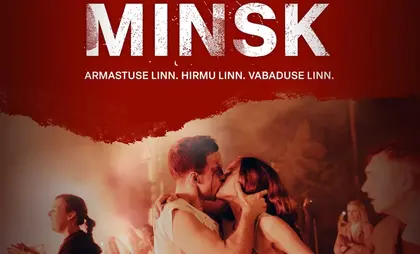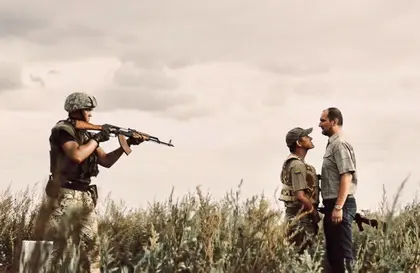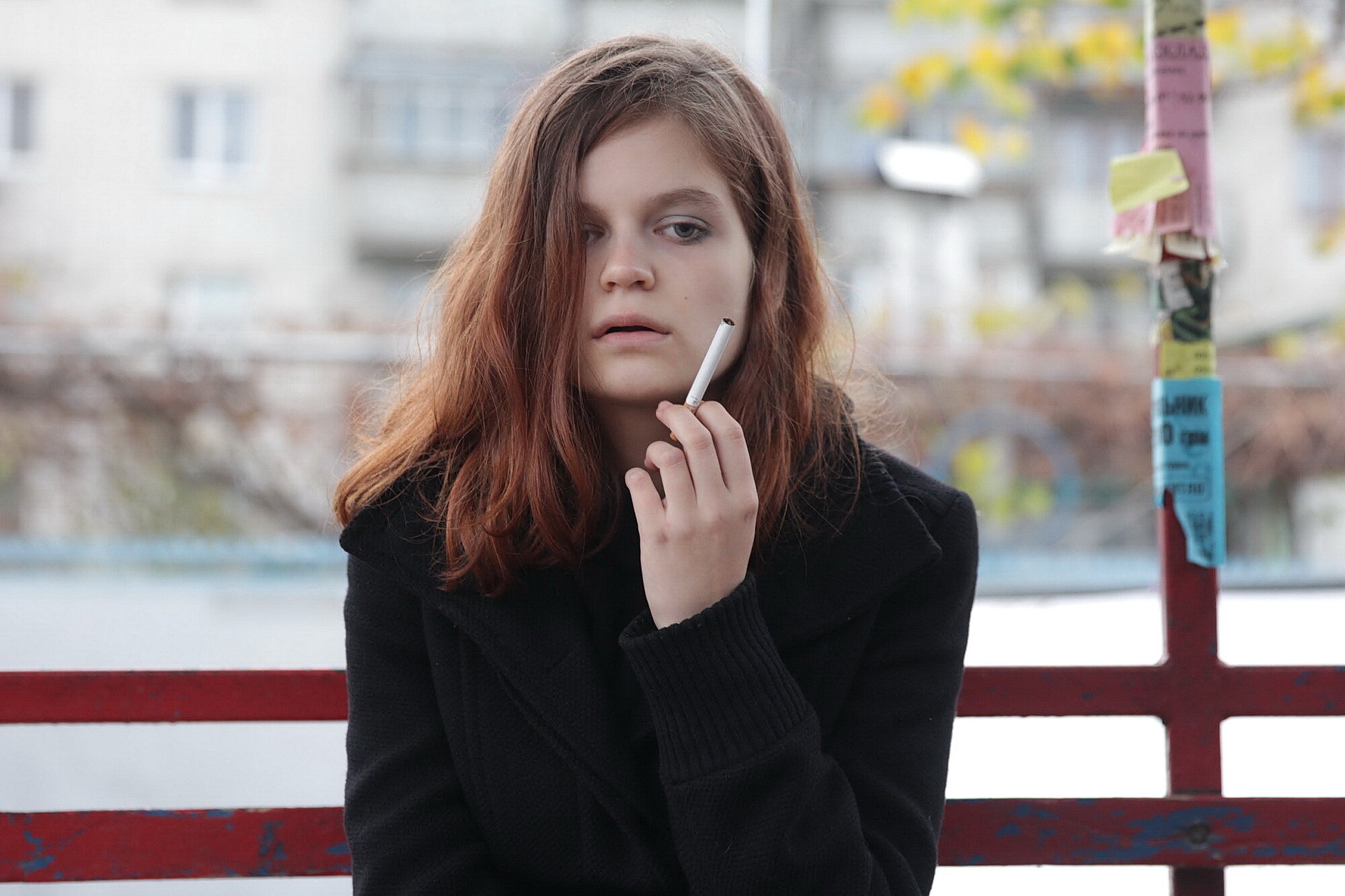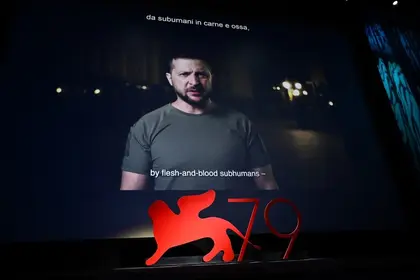It takes courage to step into the shoes of people in the middle of Russia’s war against Ukraine and empathize with both a Donbas resident and a separatist militant. Ukraine’s most-acclaimed screenwriter Natalya Vorozhbit does that in her directorial debut “Bad Roads” and takes us along on the bumpy ride.
The trip is not always pleasant, but it’s essential to understand the region. Unlike other films about the war that Russia started in 2014, “Bad Roads” focuses on what regular humans feel in the crossfire of Ukrainian armed forces and Russian-backed militants. There are no heroes or villains – only people trying to survive.
JOIN US ON TELEGRAM
Follow our coverage of the war on the @Kyivpost_official.
“Bad Roads” premiered in September at the Venice Film Festival in the Critics’ Week program, receiving the Verona Film Club Award from critics under 35 for “best innovative work.” Ukrainian critics also praised Vorozhbit as the discovery of the year at the Kinokolo film critics awards in Kyiv.
In Ukraine, the film premiered on Oct. 25 at the Kyiv Critics’ Week film festival. But the wide theatrical release is planned for the beginning of 2021. The film will be screened with English subtitles in select cinemas.
Adapted from a stage play Vorozhbit wrote in 2017, “Bad Roads” tells five short stories set on both sides of the frontline in Ukraine’s eastern region of Donbas. Vorozhbit embraces these stage origins with long takes of powerful and intimate acting by theater performers from across Ukraine.

Film Exposes Bloody Protests of Lukashenko Regime
The trailer for war drama “Bad Roads”. (Cineuropa)
Like any foray into the Donbas, “Bad Roads” starts with a military checkpoint. On the way to the frontline town of Popasna, two Ukrainian soldiers stop a tipsy civilian with no passport and an AK-47 mock-up in his car. He claims to be a school principal bringing the mock-up for his students’ military training.
The drunk man, played sensationally by Igor Koltovskyy, begs to release him and at some point, thinks he sees his female student in the soldiers’ bunker.
This first story reminds us of Vorozhbit’s screenplay for “Cyborgs: Heroes Never Die,” a 2017 drama that offered the Ukrainian military’s view of the war. The two soldiers scorn the civilian and exalt in their own role of defending the country. But at some point director decidedly turns from soldier’s point to show the side of a little person in the middle of this war.
Disoriented, the headmaster begs to release the teenage girl that he thinks he saw in the bunker. Was she really there, or was it a delusion induced by alcohol and Russian disinformation? Can he believe these Ukrainian soldiers? And does he have a choice?
“Bad Roads” doesn’t give any answers but mostly asks questions. It doesn’t give its characters the prerogative for truth or decency, challenging them instead with other characters’ views. Arguments on Ukraine’s political direction, language and the tactics of the Ukrainian army vs. those of Russia-backed militants are just a few of the issues raised.
In the second story, high school girls in the war’s gray zone discuss their love affairs with Ukrainian soldiers and their hate towards classmates who call them Ukrainians’ “whores.” Later, one of them argues with her grandmother, who begs her to come home and believes that Ukrainian soldiers are fascists, who will “mince them into cutlets” when retreating.
The theme of women at war continues in the next two stories, edited scene by scene to follow each other. One is a dark comedy-drama about a Ukrainian medic who lost her lover and drives his body out from the war zone with a male colleague. But the car breaks in the freezing cold, and the two have to spend the night with a headless body in the backseats. Theater actress Oksana Cherkashyna marvelously plays the role of the drunk medic, who yearns for the other’s intimacy in the cold and ruthless reality of war. She received Kinokolo’s best actress award for the role.
The film’s hardest and most powerful episode portrays a Ukrainian female journalist held captive by a separatist militant. This monster of a man, who says he has nothing human left after this war, is played by Yuri Kulinich, awarded with the Kinokolo prize as the best actor.
As if following a hostage survival guidebook, the journalist tries to build a personal connection with her kidnapper. Gradually, she pierces through the layers of his sickness and trauma, forcing the viewer to see what’s inside that bottomless pit. She finds some humanity left in there, and for one intimate moment, it even seems they can live together. But not until she makes her final move.
That’s when Vorozhbit finally takes a side, articulating that there are limits to what can be tolerated. As she said in a Q&A session after the film’s Ukrainian premiere, she could not make the woman forgive the militant.

Vorozhbit’s inside knowledge about life in the Donbas comes from years of on-the-ground research for “Cyborgs” and her documentary theater work. The depth of her characters and inventiveness of the narrative compensate for the plain camerawork that doesn’t always eliminate the feeling that it’s a play on screen rather than a movie.
But that could be even beneficial for the film trying to look deep into its characters and capture their every move and emotion. There are too many war films that try to excite with visuals, instead of taking a quiet look at what’s most alive in the shot.
Yet the film’s weak spot is the epilogue. In a countryside somewhere close to the frontline, a city woman runs over a chicken and wants to compensate the owners. The village couple sees this as a chance to extort the woman and even threaten to lock her up in a cellar. But suddenly, the woman in the couple snaps out of her fantasies when she hears a child’s cries from the neighbors.
Vorozhbit herself said that this epilogue should serve as a reminder that evil may appear outside the war as well, even between people who are not bad at all. But it doesn’t seem to fit other themes and dramatic genre of “Bad Roads,” besides the subject of Ukraine’s potholes.
Instead, the parable could be a wonderful centerpiece for a film about Ukrainian gothic. It’s all the more reason for Vorozhbit to make another film.
This story was produced within the Intensive Course for Film Critics organized by the Contemporary Ukrainian Cinema NGO. The content is independent of the organizers.
You can also highlight the text and press Ctrl + Enter








